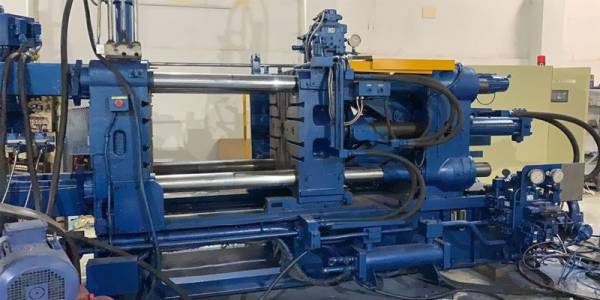Description
Pressure die casting is a metal casting process characterized by exceptional speed, precision, and the ability to produce complex shapes with intricate details. This process offers a compelling solution for high-volume manufacturing of intricate metal components across diverse industries.
Process Overview:
Molten metal is injected under high pressure into a reusable metal mold (die) cavity. The pressure ensures complete filling of the die, leading to dense, highly detailed castings with minimal porosity. Once the metal solidifies, the die opens, and the casting is ejected. This rapid cycle time allows for extremely high production rates.
Advantages of Pressure Die Casting:
- High Production Rates: The rapid cycle times result in significantly higher production volumes compared to other casting methods.
- Excellent Dimensional Accuracy and Surface Finish: Pressure die casting consistently produces parts with tight tolerances and smooth surfaces, often minimizing or eliminating the need for secondary machining.
- Intricate Detailing: Complex geometries, thin walls, and undercuts are readily achievable, allowing for the creation of sophisticated components.
- Strong Mechanical Properties: The high pressure ensures a dense structure, resulting in high strength and durability.
- Cost-Effective for High-Volume Production: While tooling costs are relatively high upfront, the high production rates make it cost-effective for large-scale manufacturing.
- Wide Range of Metal Alloys: Pressure die casting is compatible with a broad spectrum of metals including zinc, aluminum, magnesium, and copper-based alloys, each offering unique properties for specific applications.
Applications:
Pressure die casting is widely used across various industries, including:
- Automotive: Engine components, transmission parts, body panels, wheels
- Electronics: Housings, heat sinks, connectors
- Hardware: Locks, hinges, fasteners
- Appliances: Pump housings, motor components
- Medical Devices: Surgical instruments, implants (certain alloys)
Material Selection:
The choice of metal alloy depends on the specific application requirements, considering factors like strength, corrosion resistance, weight, and cost. Common alloys include:
- Zinc Alloys: Cost-effective, excellent for intricate details, good corrosion resistance.
- Aluminum Alloys: Lightweight, high strength-to-weight ratio, good corrosion resistance, excellent for structural applications.
- Magnesium Alloys: Lightest of the common die casting alloys, ideal for weight-sensitive applications.
- Copper Alloys: High strength, excellent thermal and electrical conductivity, suited for specific applications requiring these properties.
